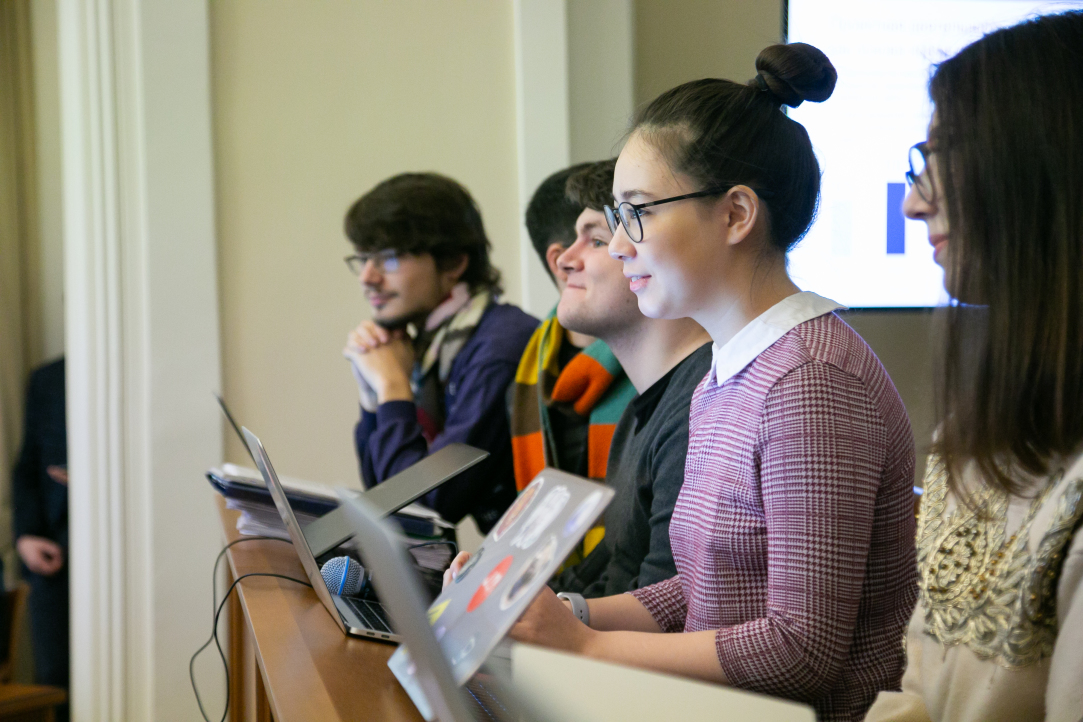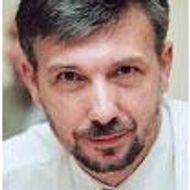45 Students Admitted to HSE’s New Combined Master’s-PhD Track

HSE University’s new combined Master’s-PHD track programme received 212 applications from first-year master’s students this year. Of these, 45 students were admitted to the track to study at a combined total of 17 doctoral schools at HSE. The combined Master's-PhD track, which was launched just this year, provides a new form of support for students who study in state-funded slots and intend to pursue careers in academia.
The selected candidates will receive a monthly stipend of 50,000 roubles during their master’s studies, and 70,000 roubles during their PhD studies.
The selection committees gave preference to students with strong undergraduate research records who have authored or co-authored scholarly publications. In accordance with procedure, the selection was conducted in an open, public format. Students’ academic records were considered and discussed at the relevant university departments. Experienced colleagues assessed each students’ potential and the opportunity to support them as part of the new track. Overall, there were about 5 applicants per place.
Sergey Roshchin, HSE Vice Rector

The key task of the combined track is to identify students who have the capability and motivation to pursue careers in academia. This is a good alternative to PhD programmes offered at universities abroad. The committees selected students who are becoming or are already part of HSE’s priority academic projects. This means that early in their academic careers, our young colleagues will become members of research teams. I hope that as they complete their doctoral programmes, they successfully defend their theses and go onto work at universities and research institutes.
One of the selected candidates is Maxim Evstigneev. He will write his thesis at the Doctoral School of Philosophy under the supervision of Associate Professor Petr Rezvykh. Two years ago, as a Bachelor’s student, he worked as a research intern at the Laboratory of Transcendental Philosophy and chaired the Kant Reading Group, where participants closely read Kant’s Critique of Pure Reason in Russian and German, along with other key sources in the history of philosophy. Since this year, Maxim is also participating in the project funded by the Russian Foundation for Basic Research, ‘Kant’s project of descriptive metaphysics: history and contemporary development’.
Alexandra Malinina, an alumna of the Bachelor’s programme ‘International Relations’ and a student of the Master’s programme ‘International Relations: European and Asian Studies’, won a Golden HSE in 2018 in the Silver Nestling category. When applying for the combined track, she presented a rigorous research project that falls within a primary areas of focus of the Faculty of World Economy and International Affairs: ‘Europe and European Integration’. Alexandra is chair and organizer of the HSE International Analytics Club; she has an experience with international academic collaboration (as part of an international expert team for two projects by the University of Cambridge) and organizing international conferences in English.
The total duration of the combined track is five years. Most of the coursework takes place during the first two years. Each student receives an individual curriculum, which includes the core elements of their Master’s programme curriculum and is coordinated and adjusted by the relevant doctoral school. At the same time, the student develops a thesis topic and selects an academic supervisor.
The students selected for the combined track include not only graduates of HSE University, but from other universities, including those in other regions. For example, Alyona Merkusheva, student of the Master’s programme ‘Marketing: Digital Technologies and Marketing Communications’, earned her Bachelor’s degree at Far Eastern Federal University (in Innovation Studies). She won the Innovation Promotion Fund’s competition (and received an Umnik Grant), completed an internship at the Far Eastern Office of Skolkovo Fund, and has experience working in EdTech. Her research interest is consumer value generation in EdTech.
Natalia Artekha graduated from the RUDN Faculty of Physics, Mathematics and Natural Science before starting the master’s programme in Physics at HSE University this year. The number and quality of her publications already conforms to the requirements for a Candidate of Sciences degree: she has published two papers in Q1 and Q2 journals and another two in Russian-language journals approved by the Russian HAC. With her exceptional research resume, Natalia presented a high-quality research project that corresponds to the areas of focus of the HSE Doctoral School of Physics and the Joint Department of Space Physics with the Space Research Institute (RAS). She is now going to participate in the project, ‘The role of whistlers induced by lightning discharges in the dynamics of energetic electrons in Earth’s radiation belts’, which is supported by a grant from the Russian Foundation for Basic Research.
Students admitted to the combined track must complete their theses within a five-year period. The programme aims to bolster student scholarly production (i.e., publications) by enabling students to devote themselves fully to their research. Students will gain research skills not only in class, but while immersing themselves in research projects at HSE. In so doing, they will become full-fledged project participants working alongside their professors.
See also:
‘My Research Has Evolved into A Broader and More Encompassing Vision’
Seungmin Jin, from South Korea, is researching the field of Explainable AI and planning to defend his PhD on ‘A Visual Analytics System for Explaining and Improving Attention-Based Traffic Forecasting Models’ at HSE University this year. In September, he passed the pre-defence procedure at the HSE Faculty of Computer Science School of Data Analysis and Artificial Intelligence. In his interview for the HSE News Service, he talks about his academic path and plans for the future.
‘Studying at HSE Was a Chance for Me to Get to Know Some Supportive Seniors, Knowledgeable Professors, and Wonderful Friends’
On August 4, 2023, a pre-defence of the thesis on ‘Refugee-Host Community Conflict over Assimilation, Integration, and State Legitimacy: The Case of Rohingyas in Bangladesh’ by Md. Reza Habib will be held at HSE University. The preliminary defence will take place at a joint meeting of the HSE School of Sociology and the International Laboratory for Social Integration Research. Md. Reza Habib shared his experience of studying and preparing his PhD with the HSE News Service.
‘At HSE University, We Receive Substantial Support for Our Research’
Wenrui Zhang, from China, is a recent graduate of theMaster’s in Economics and Economic Policy at the HSE UniversityFaculty of Economic Sciences. Having successfully defended his master’s thesis on the impact of COVID-19 on the incomes of vulnerable groups, Wenrui has set his sights on publishing his research and enrolling in adoctoral programme at the university. The HSE News Service interviewed Wenrui about his achievements so far and his goals for the future, and also spoke to Prof.Elena Kotyrlo, his academic supervisor.
‘It’s a Very Small Area of Political Science, and Working to Redress That Is Very Satisfying’
On March 15, Judas Everett defended his doctoral dissertation ‘The Effect of the Patterns in the Dissolution of Communism on the Transition to New Systems in Eastern Europe’, which investigates the relationship between the demise of communist regimes in Central and Eastern Europe and the quality of democracy in the post-communist regime. The defence took place remotely. His academic supervisor was Professor Andrey Akhremenko of the HSE University School of Politics and Governance at the Faculty of Social Sciences. In his interview, Judas talks about the topic of his research and explains why political science is more important than ever.
‘My PhD Taught Me about Life, Professionalism, Research, and Controlling My Emotions’
Wai Yan Phyo Naing first came to HSE University from Myanmar to enrol in a master’s programme at the Faculty of World Economy and World Affairs in 2015. After graduation, he decided to pursue a PhD at the Doctoral School of International and Regional Studies. On February 16, 2023, he successfully defended his dissertation on ‘Evolution of Myanmar’s Policy Towards China (1988–2020)’.
Pursuing a PhD in Russia: ‘Attractive and Exotic’
After getting his Master’s degree in Computer Science in Rome, Julio Carrasquel decided not to pursue a corporate career in IT, but to move to Moscow to get a PhD at HSE University. As a result, he received a scholarship on the Advanced Doctoral Programme, successfully defended his thesis, and was named one of the university’s Best Teachers. Julio talked with the HSE News Service about his path in academia and life in Russia.
'I Believe That at HSE University, You Can Grow Bigger'
Tharaa Ali, from Syria, got her Master’s in Moscow and is now a first-year PhD student in informatics and computer engineering at HSE University. Below, she talks about the use of AI in learning, winning scholarships, and doing research at HSE University.
‘I Want to See Studies Emanating from Africa Contributing Substantially to Cognitive Science’
Abdul-Raheem Mohammed from Ghana has recently defended a PhD dissertation in cognitive psychology at HSE University via remote procedure. Abdul-Raheem and his academic supervisor, Dmitry Lyusin, talked to the HSE News Service about their cooperation, the advantages and complications of remote PhD defence at HSE University, and the prospects of cognitive science in African countries.
‘While Abroad, I Will Continue to Tell Students and Teachers about HSE University’
Daria Smuseva and Ivan Malakhov are HSE MIEM graduates who met when they were students at HSE University. They are now married and are studying for their PhDs at Ca’ Foscari University of Venice (Italy). In this interview, they talk about their studies in Venice, local bureaucracy, learning Italian, and their research on blockchain systems.
‘ICEF Is Doing Everything to Ensure That Scientists Are Engaged in Research, Not Paperwork’
Tatiana Mayskaya, a graduate of Moscow State University (MSU) and the California Institute of Technology (Caltech), began working at HSE University in 2017. She currently teaches courses at ICEF and FES and researches behavioural economics and information economics. In this interview, Ms Mayskaya explains how throwing darts can help in the choice of a PhD programme, how the ‘multi-armed bandit’ phenomenon is useful for business and why HSE is the ideal place to do research.


